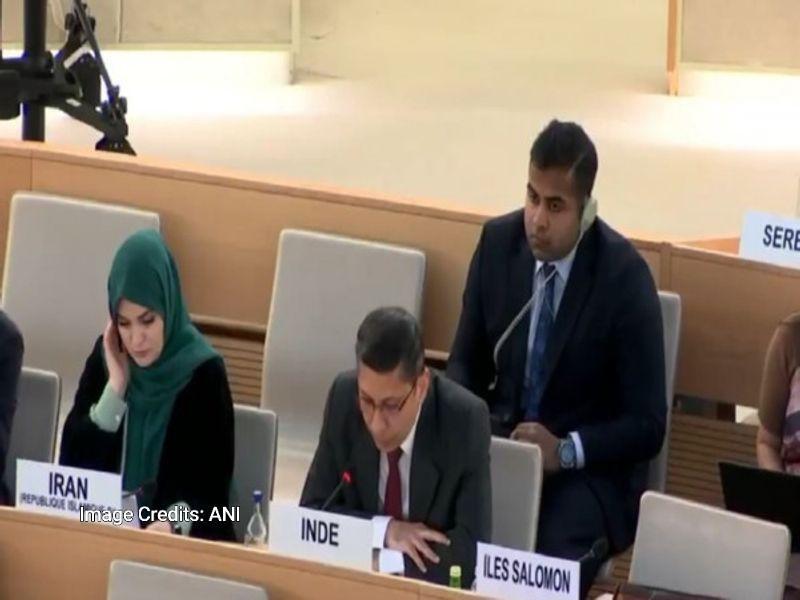
Unfounded, Baseless: India on UNHRC Chief’s Remarks on J&K, Manipur
India has strongly reacted to the comments made by the United Nations High Commissioner for Human Rights, Volker Türk, on the situations in Jammu and Kashmir (J&K) and Manipur. The UNHRC chief had expressed concerns over restrictive laws in J&K and called for addressing violence in Manipur, which India has termed as “unfounded and baseless”.
India’s permanent representative to the UN, Arindam Bagchi, made these remarks during a session at the UN Human Rights Council in Geneva. Bagchi stated that the world’s largest democracy continues to be a healthy, vibrant, and pluralistic society, and that the UNHRC chief’s comments were an attempt to “cherry-pick” certain issues out of context.
The UNHRC chief’s remarks had sparked strong reactions from the Indian government, with Bagchi stating that the concerns expressed were not based on facts. He emphasized that J&K is a integral part of India and that the country has taken several steps to ensure the well-being and safety of its citizens.
The situation in J&K has been a matter of concern for the international community, with the UNHRC chief expressing concerns over the restrictive laws in the region. India has maintained that these laws are necessary to maintain law and order in the region, which has been plagued by terrorism and militancy.
In recent years, India has taken several steps to ensure the well-being and safety of its citizens in J&K, including the revocation of Article 370, which gave special status to the region. The government has also taken steps to promote economic development in the region, including the introduction of a new land ownership law.
India has also been critical of the UNHRC chief’s comments on Manipur, which he had described as a region plagued by violence and human rights abuses. The government has maintained that the situation in Manipur is complex and multifaceted, and that the UNHRC chief’s comments were an attempt to simplify the issue.
Manipur has been a troubled region for several years, with several groups waging armed insurgencies against the government. The region has also seen several instances of violence, including the killing of civilians and security personnel.
The Indian government has taken several steps to address the situation in Manipur, including the introduction of the Armed Forces (Special Powers) Act, which gives security forces special powers to maintain law and order in the region.
Despite these efforts, the situation in Manipur remains complex and challenging, and the government has acknowledged that more needs to be done to address the issue. However, India has maintained that the UNHRC chief’s comments were an attempt to sensationalize the issue and that the government is committed to ensuring the well-being and safety of its citizens.
The Indian government’s reaction to the UNHRC chief’s comments has been widely welcomed by many in the country, who see it as a strong response to what they perceive as an attempt to undermine India’s sovereignty and territorial integrity. The government’s commitment to ensuring the well-being and safety of its citizens has also been praised by many, who see it as a key aspect of its development and growth.
In conclusion, India’s reaction to the UNHRC chief’s remarks on J&K and Manipur has been strong and unwavering. The government has maintained that the concerns expressed were unfounded and baseless, and that India is a healthy, vibrant, and pluralistic society. The government’s commitment to ensuring the well-being and safety of its citizens has also been praised by many, who see it as a key aspect of its development and growth.






